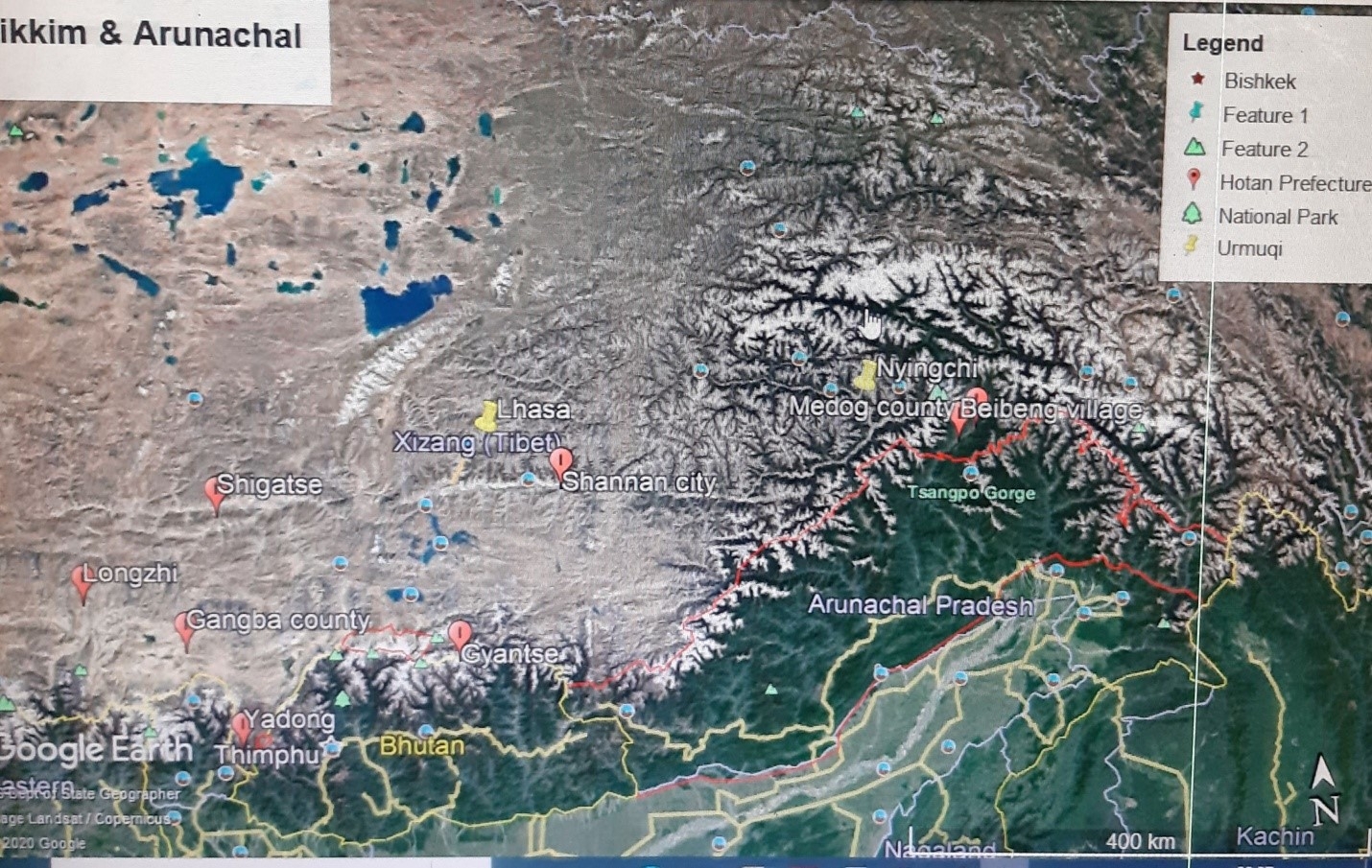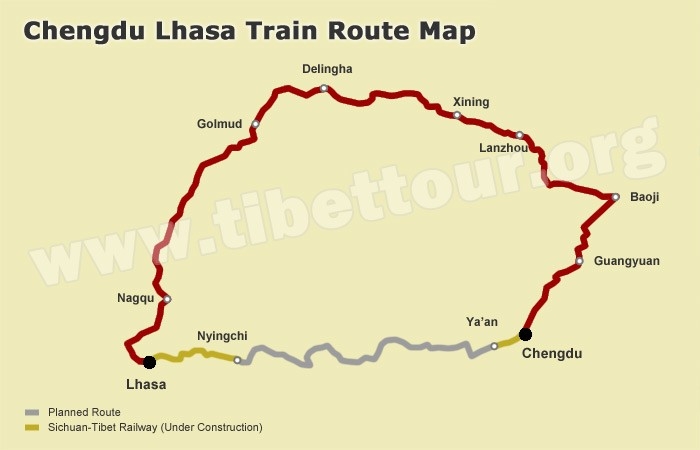Perspective of PLA Force Levels, Capabilities and Intent: Sikkim and Arunachal Pradesh War Scenarios
Pre-occupied with the Ladakh crisis developments, hardly ever there is mention of the situation prevailing in the Eastern Theater – Sikkim and Arunachal Pradesh. Visual media myopic-cum-isolationist sensational coverage of tactical episodes cannot provide a balanced perspective either at the “Grand Strategy” or “Military Strategy” levels.
Surely, understanding realities of “PLA Army Force Levels, Capabilities and intent” opposite Ladakh must be done simultaneously with PLA Force levels and capabilities in Sikkim and Arunachal Pradesh and likely “Scenarios” based on PLA military strategies to conduct operations; and their intent in short, mid and long term contexts. So also, one needs to consider even the Central Sector and Bhutan. Let me also reiterate that even the PLA Air Force and PLA Strategic Rocket Forces capabilities need to be reviewed to reach final assessments.
Force Levels of Chengdu MR Pre 2017 Reforms: Responsible for Indo-Tibet Arunachal and Nepal Border and consisted of the following formations:
• 13th Group Army: 37th Infantry Division; 149th Mechanized Infantry Division; Armored Brigade; Artillery Brigade; AAA Brigade; 2nd Army Aviation Regiment; Cheetah' Special Operations; Engineer Regiment, Signal Regiment, and EW unit.
• 14th Group Army: 31st Infantry Division; 40th Infantry Division; Armored Brigade; Artillery Brigade; AAA Brigade; 29th Chemical Defense Regiment; Signal Regiment, Engineer Regiment, and a Pontoon Bridge Regiment.
• Tibet Military District (Lhasa): 52nd Mountain Motorized Infantry Brigade, 53rd Mountain Motorized Infantry Brigade; the 54th Mechanized Infantry Brigade; 308th Artillery Brigade; Special Operation Brigade; 651st Air Defense Brigade; 15th Engineer Regiment; Signal Regiment; Electronic Warfare Regiment; Border Defense Regiments (BDR) (?); and 2 PAP Divisions.
Force Levels Post 2017 Reforms: As per information, the Western Theater Command (WTC) restructuring has undergone changes with two Army Groups as under:
• 77th Group Army (Changzhou City, Chengdu City): 139th Heavy Combined-Arms Brigade; 181st Medium Combined-Arms Brigade; 39th Medium Brigade; 40th Mountain Combined-Arms Brigade; 150th Light Combined-Arms Brigade; 55th Light Brigade; 77th Army Aviation Brigade; 77th Special Operations Brigade; 77th Artillery Brigade; 77th Air Defense Brigade; 77th Brigade of Engineering Chemical Prevention; 77th Service Support Brigade.
• Tibet Military District (Lhasa): 52nd Mountain Motorized Infantry Brigade (Nyingchi), 53rd Mountain Motorized Infantry Brigade (Nyingchi); the 54th Mechanized Infantry Brigade (Lhasa); 85th Special Operation Brigade; 85th Army Aviation Brigade; 85th Artillery Brigade; 85th Air-Defense Brigade; 85th Engineer and Chemical Brigade; 7th Electronic Countermeasure Brigade; 351st Border-Defense Regiment (BDR); 352nd BDR; 353rd BDR; 354th BDR; 355th BDR; 356th BDR; 357th BDR; and 358th BDR. Also 38th and 41st Armed Mobile Police Divisions. Three military sub-districts: Shannon; Xigaze; and Nyingchi.
Most important to note that the formations of Tibet Military District, by virtue of their permanent location in the Tibet Plateau are tailor-made to conduct high altitude warfare battles as terrain favors mountain warfare. However, the same cannot be said to be true of the 77 Group Army formations/units located in the area of Chengdu.

Yet another key factor that needs to be taken into consideration is the deductions from the terrain analysis particularly the paucity of the line of communication, but yet their proximity to the McMahon Line in specific sectors:
• Lhasa is located 47 hours from Chengdu via Golmud by rail.

• Two roads provide access from Chengdu to Lhasa: Via Chamdo; and Nyingchi. Both roads pass through high ridges interspersed with gorges and river valleys.
• Key military stations include Nyingchi-Mainling-Shannon-Cona (opposite Bumla)-Gyantse (Opposite Bhutan)-Yadong (Sikkim Bulge)-Lhasa-Shigatse.

• Nyingchi-Mainling, Shannon, Lhasa and Shigatse are forward airfields.
In particular, the close proximity of McMahon Line to the line of communication in Nyingchi-Mainling is a matter of operational concern since they provide easy access to the passes on McMahon Line. For example, Kepang La, Bane La, Lusha La, Lamdo La, Shoka La, Nayu La, Tunkar Ogo, Dome La, Sador Takok, Puning La, Lo La and Serptung La in Siang Districts are easily accessible to PLA. So also in Subansiri districts, Longju, Chinung La, Kuduk, Rija La, Tungdhara, Keju Las, Chimpung La, Bome La, Jammu Pass, and Mukhpa La are easily accessible. And, in the case of the Walong Sector, PLA launch pads are quite close and easily accessible to their RRU formations/units.
Induction/deployment of 77 Group Army formations mostly passes through mountain gorges and their logistics support is a handicap. It is also not easy for the Combined Army Brigades of 77 Group Army, although trained to conduct offensive and defensive operations in isolated high-altitude areas with difficult terrain and weather conditions, rapidly adapt to high altitude conditions. Other than Noka La in North Sikkim for the conduct of mobile warfare, tanks and APCs will be mostly restricted to mountain roads. Even lack of cross-terrain mobility limits the ability of ground forces to conduct penetrating or outflanking operations. So, the focus may be on airmobile landings in the rear areas as opposed to infiltration by land routes.
In Part 1, 5 likely war scenarios and their likelihood have been reviewed. Nuclear War was ruled out. And, the focus was mainly on Ladakh Front Conventional War jointly with or without Pakistan or Limited War to secure all disputed areas of LAC; and Joint Fire Strike Campaign (JFSC). The JFSC operations may have limited value.
PLA Operational Objectives opposite Sikkim and Arunachal Pradesh: Considering the terrain and line of communication constraints, most likely operational-level objectives of the PLA in case of “limited war” may be as follows:
• Capture maximum possible territory in Sikkim, seize Siliguri Corridor, and destroy maximum forces. Cuts off the Eastern Region from the heartland.
• Annex maximum possible territory up to Claim Line in Arunachal Pradesh and destroy maximum forces. Achieves political aims during negotiation talks.
• Capture claim areas in Bhutan.
Options: Two contingencies or scenarios include: Limited or Enhanced Threat offensive. With force level initially available, that is, Limited offensive, the end objectives or missions may be as follows:
• Forces available to WTC include 52nd Mountain Motorized Infantry Brigade (Nyingchi), 53rd Mountain Motorized Infantry Brigade (Nyingchi); the 54th Mechanized Infantry Brigade (Lhasa); 6 x CABs (6 task-oriented reduced divisional size forces) of 77 Group Army; 8 x BDRs (brigade-sized); 38th and 41st Armed Mobile Police Divisions; and supporting arms – Nearly 10 Divisions.
• Limited Threat: Choices available for the forces under Tibet Military District and 77 Group with 6 CABs and Special Operation Brigade) may be as follows:
* With 54 Mechanized Brigade and 2 BDRs to advance to capture either line Chungthang-Gangtok or line Gangtok-Kathmandu;
* With 52nd and 53rd Mountain Motorized Infantry Brigades (Nyingchi) and 2 x BDR to attempt capture Tawang defenses;
* 3 x CABs of 77 Group Army with BDRs to capture Walong.
* BDRs reinforced by PLA reserves to secure passes in their respective operational sectors and advance towards line Along-Daporizo.
* BDRs to secure claim areas in Bhutan.
• Enhanced Threat with the addition of Air Mobile Divisions and PLA reserves: Choices available may include following end objectives and missions:
* Secure Siliguri Corridor;
* Advance towards Sela defenses and attempt its capture;
* Advance to plains after the capture of Walong up to the Claim Line.
* Advance to secure line Along-Daporizo and threaten Itanagar.
* BDRs to secure claim areas in Bhutan.
In Enhanced Threat Scenario, it is quite likely that the WTC may allot CABs ex-76 Group Army besides, CMC/PLA, assigning additional formations like allotment of RRUs, reserve divisions and 2 Airborne Divisions to achieve operational objectives defined above.
So what? The deduction is simple. Additional formations to occupy defenses in-depth or reinforce defenses in the main defense zones or counter attack vital grounds would be imperative.
Considering both Limited and Enhanced Threat Perspectives, political and bureaucratic decision-makers – Blind men of Hindustan - must plan and implement following decisions post haste: the merger of 46 battalions of Assam Rifles with the Indian Army and redeployment in Arunachal Pradesh; and also a merger of designated ITBP/SSB with the Indian Army, the Ministry of Defense. By such a merger, one is consolidating the full combat potential within existing resources. If so, the requirement of additional troops would be minimized. What would be needed is the acquisition of combat weapon systems for the Assam Rifles, ITBP, and SSB units. For launching counteroffensive, however, a separate Corps sized formation needs to be raised if the present 17 Corps is assigned to the Ladakh theater.
By merger of ITBP and SSB units, their “tails” like “Training Centers for every 2 battalions” located as far down as in Bangalore can be dramatically reduced with the “Teeth” reinforced and strengthened to provide the “Shield and the Punch” against China.
It is high time for Modi, Rajanath Singh, and Amit Shah to undertake visits to Sikkim and Arunachal Pradesh and speedily enforce the implementation of regrouping of units from the Ministry of Home to Ministry of Defense. Such a far-reaching decision cannot be left to either the Ajit Doval, the NSA, or bureaucrats in the decision-making loop who will obstinately oppose any initiative to reduce “Empires” built over the past 5 decades.
Otherwise, the “Blind men of Hindustan” will not only be fooling “We the gullible People” of India and on the rebound fooling themselves at a great cost to national security. (To be contd…)
Bharati Web








